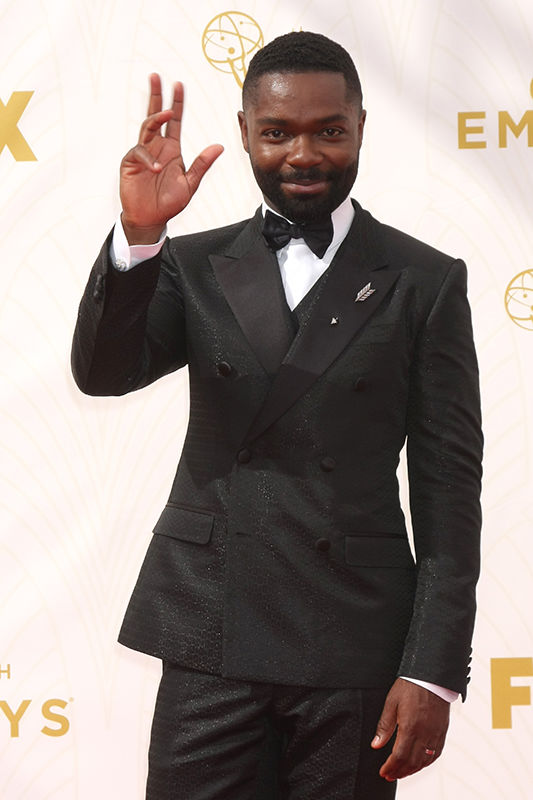It’s been an interesting year for actor David Oyelowo, as he took on the roles of two real-life men who couldn’t be more different. First, he made a splash by earning his first Golden Globe nomination in 2015 for his performance as Dr. Martin Luther King Jr. in the Christmas 2014 movie “Selma.”
Then in September, he starred in the Paramount Pictures release “Captive,” playing a man named Brian Nichols who made national headlines in 2005 when he killed four people while escaping from prison during his trial for a rape charge. The reason why Oyewolo found Nichols’ life story worth telling was because of what happened next.
After taking a meth-addicted woman named Ashley Smith hostage for hours, Nichols was convinced to surrender peacefully after she read the Christian-advice book “The Purpose-Driven Life” to him. That tome, written by the internationally popular evangelist Rick Warren, also had a miraculous effect on Smith, who managed to kick her addiction, regain custody of her daughter and enter a successful second marriage.
While “Captive” was largely overlooked at the box office, it’s getting a second chance with viewers thanks to its recent release on DVD, BluRay and Video On Demand services. As a devout Christian, Oyewolo is hoping that the movie’s portrait of lives radically transformed through Christ will have a greater impact this time around.
“There were very clear differences between these roles, because MLK was a man of peace seeking justice, as opposed to Brian Nichols, who committed as violent an act as you can in killing four people,” explains Oyewolo. “On the surface, they’re very different, but for me what drew me to both was you have light overcoming darkness in a very palpable, miraculous way.”
A native of Oxford, England, Oyewolo studied theatre at the London Academy of Music and Dramatic Art before launching his career with the Royal Shakespeare Company a year after graduation in 1999. Such was his talent that, while still in his 20s, he became the first black actor ever to play an English king in a major production of Shakespeare with the acclaimed company.
His move to screen stardom began with a role in the hit British TV series “MI5,” which followed the adventures of British espionage agents, akin to the smash hit American TV series “24.” His big break into big-screen work came when he was cast by director Ava DuVernay in the 2012 film “Middle of Nowhere.” His performance made such a strong impression that DuVernay cast him as Dr. King in “Selma” two years later.
The contrast between playing a man of God in “Selma” and a man with evil in his soul in “Captive” was a stark one, and Oyelowo had a hard time keeping the darker role in check at times.
“To play someone like Brian Nichols is a very difficult headspace to inhabit due to what he did, but as an actor I can’t judge a character and portray him truthfully,” says Oyelowo, who also was a producer on “Captive.”
“King didn’t see himself as an icon; he simply was a human being dealing with the challenges before him as best he can,” he says. “I can’t judge Brian and play him, but as a human being I found what he did very heinous, and I had to crawl under his skin to understand and play him. That’s a very difficult thing to do when you’re dealing with someone who killed four people in one day.”
Aside from being a great story of personal redemption, Oyelowo believes that “Captive” has further value as a movie that spotlights positive racial relations. At a time when the nation is frequently divided along racial lines, its story of a black criminal and a white hostage finding spiritual peace and redemption together is particularly affecting.
“In ‘Selma,’ change finally came for blacks because, after the horrible incidents of the worst day — Bloody Sunday — white people and black people came together because they deemed it an American problem: injustice for one, was injustice for everyone,” says Oyelowo.
“In ‘Captive,’ I think the reason why Brian didn’t kill Ashley was that she was able to defuse this human time bomb when she showed him humanity, and showed that she was also a broken person and that’s why he stopped long enough for her to read ‘The Purpose-Driven Life’ to him,” he adds.
“I think that humanity is going to be the key at these troubled times, humanity borne out of understanding, not just fearing what we don’t know or understand, but knowing we come from all kinds of situations. Understanding is what will help us cut through the troubled times we’re in right now.”
Regardless of whether he’s playing a good man or an evil one, Oyelowo always hopes to have a purpose behind his own work onscreen and onstage. He believes that his devout Christian faith has a huge impact on his career choices because it gives him “a very clear moral compass” with which to make his decisions.
The married father of four is unafraid to express his faith openly in Hollywood, and finds that being so open has not hurt his career. The key to successfully maintaining his career while cultivating his spiritual life rests in ensuring that his faith “is authentic and not just spoken.”
“I don’t shy away from dark roles or material with darkness in it, as long as light overwhelms the darkness, and there isn’t a glamorizing of the darkness,” says Oyelowo. “You cannot get to light without making it through the darkness. That’s why I gravitated towards ‘Captive.’ A miraculous thing happened. [Ashley] attributes her faith partly to Brian Nichols. That’s God’s grace in a very, very dark place.”

